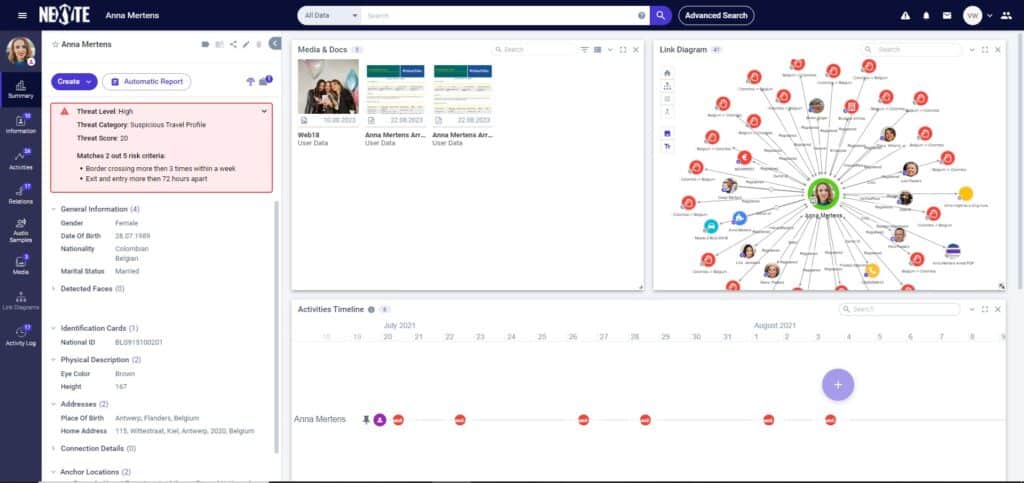Fighting Love Scams with Decision Intelligence

Online dating sites and apps have been popular for many years, and as more people are searching for love, more criminals are taking advantage of lonely victims. Fraudsters find victims on dating sites or social media platforms, luring them with flattery and false promises. This troubling trend has become prolific, with the US Federal Trade Commission indicating nearly 70,000 reports of romance scams in 20221 with losses of over $1.3 billion. This makes up a staggering portion of the more than $10 billion in losses2 from online scams reported to the FBI in 2022. Worldwide, romance scams are a common and growing phenomenon, and according to a January 2023 survey, 66% of survey respondents in India stated experiencing at least one online dating scam, and a quarter of those surveyed in France, the United States, and New Zealand stated the same3.
Love scams go beyond individual scammers working on their own and are frequently conducted on a large, enterprise-level scale by organized crime groups. Criminal networks have recognized the financial potential in manipulating individuals seeking love or companionship online, as this has proved to be a profitable and low-risk way to steal funds and finance illegal activities, while avoiding detection and prosecution by authorities. As these scams often cross international boundaries, involve anonymous culprits, and have low rates of reporting by embarrassed victims, they are challenging for law enforcement agencies to combat effectively.
This is where decision intelligence comes in.
Read on to learn about the different kinds of love scams and how the right tools can help law enforcement crack down on fraudsters and recover victims’ funds.
What is a love scam?
Perpetrators of love scams, also known as romance scams, exploit spaces where victims feel safe to let their guard down, like dating websites and social media platforms, and often use emotionally manipulative tactics to collect personal information or funds. Some scammers will initiate a quick interaction, involving sending a link to a fake web site to conduct a phishing campaign or messaging a victim a link to malware. Others will invest weeks or months gaining the confidence of their victims in order to get what they want. These love scams often result in loss of money, cyber-attacks, extortion, or other forms of exploitation.
What are popular love scams?
Love scams take many forms, and perpetrators often operate within a gray area for law enforcement. Some con artists coax funds from “willing” victims, making it difficult for law enforcement to charge fraudsters with a crime. This paradigm was highlighted in the popular case of the Tinder Swindler, who was not charged for many of his crimes. Other crimes, especially those involving organized criminal networks, money laundering, and terror funding, are more clear-cut, and easier for law enforcement to crack down on.
Common forms of romance scams include:
- Pig butchering – a scam in which a fraudster cultivates trust with the victim in order to persuade the victim to participate in an “investment opportunity,” often involving cryptocurrency. The perpetrator eventually disappears with the money invested. Pig butchering scams are often carried out by criminal syndicates.
- Money mule scams – another trust-based racket popular with criminal networks in which a criminal will lure a victim into helping them launder money. The victim will sometimes receive funds from their love interest, with instruction to move the funds via wire transfers, cash apps, or gift cards. In early 2023, the US Justice Department conducted a three-month campaign to crack down on money mules and took over 4,000 legal actions. While some mules were willing accomplices in money laundering, many were victims of fraud.
- Identity theft scams – can take many forms. A scammer may build trust with victims, coaxing out personal information that can later be used to steal their identities. Some fraudsters leverage low-contact methods such as sending a malware link or a fake website to phish for information.
- Sextortion scams – involve a predator building a relationship with a victim before asking for sexually explicit photos or videos. Once received, the perpetrator extorts money from the victim, threatening to post the images publicly or send them to the victim’s loved ones. Perpetrators of this insidious crime often target young victims.

How does cryptocurrency help romance scammers?
The relatively anonymous nature of cryptocurrency and the ease with which it is possible to make cross-border financial transactions makes crypto scams a popular way for romance fraudsters to steal money from victims while evading authorities. In many cases, criminals will instruct victims to transfer funds to a non-custodial wallet app, as this adds an extra step in the transaction sequence, and makes it less likely that the transfer will be flagged or frozen as a high-risk or criminal transaction by the automated compliance systems of the commercial exchanges. Additionally, decentralized finance (DeFi) makes it possible to present victims with a fake crypto “investment” opportunity, and scam them into thinking they are earning money from “investments”, when in reality the money is going directly to the scammer. DeFi allows scammers to avoid the normal regulatory framework of banks and institutional intermediaries.
How decision intelligence can support romance scam investigations
Love scams are challenging for law enforcement agencies to investigate. Fraudsters often vanish without a trace, use fake accounts, and often work across multiple jurisdictions and international borders. By fusing data from multiple sources, including cryptocurrency wallets, internet service providers (ISPs), the web and social media platforms, investigators can accelerate the process of identifying suspects.
Decision intelligence platforms allow law enforcement agencies to build a unified investigation view from multiple data points across different departments and cases. Advanced analytics enables the enrichment and correlation of data, allowing investigators to uncover patterns, anomalies, hidden relationships, and previously unattainable insights.

Decision intelligence platforms can aid love scam investigations with four important capabilities:
- Profile resolution and visualization: Investigators can fuse all identifiers on a specific suspect, including social media profiles, phone numbers, crypto wallets, location data, and others, to create a single, unified profile. Visual tools can aid investigators in viewing connections between individuals and events, timelines, and relationships. This provides insights into patterns, anomalies and criminal networks.
- De-anonymization: Once a profile suspected to be involved in criminal activity is detected, a critical stage of the investigation is to de-anonymize the profile in order to reveal the real-world identity of the suspect. This can be done by correlating certain data, such as phone numbers or social media profiles, to known entities. For example, in some cases, fake social media accounts can be correlated with other accounts that have real identifiers, like email addresses.
- Collaboration tools: Love scams may span various criminal activities, jurisdictions, and department purviews; thus, it is often necessary to have an interdisciplinary approach to solving cases. Collaboration tools enable secure information sharing and communication, so that different teams and departments can work together.
- Advanced analytics and risk assessment: Investigators can use advanced analytics and machine learning to triage cases in order to optimize resources. In love scams, this could be based on the size of funds extorted, the number of victims, or the size of criminal networks perpetrating a given scam. Advanced analytics and machine learning can also help investigators to focus in on the most likely suspects based on risk indicators, such as individuals with multiple phones, several accounts in the same platforms, or lifestyles that appear to be outside of their means.
Contact us to learn more about how decision intelligence can help your organization combat romance scams.
Sources
2. https://www.cnn.com/2023/03/13/politics/fbi-online-fraud-report/index.html
3. https://www.statista.com/statistics/1389677/romance-scam-encounter-worldwide-by-country/